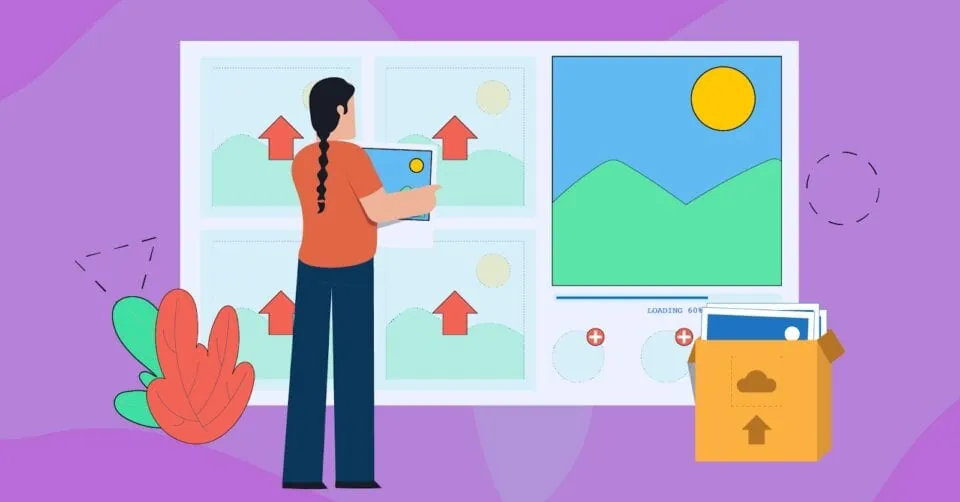Local SEO for Bookstores: Turn Your Shop Into the Community’s Favorite Reading Spot
Last updated Nov. 17, 2024

Written by Iftekhar Chowdhury. In collaboration with oDeskStudio

Picture this: A book lover searches for “independent bookstore near me” while sipping their morning coffee. They’re eager to find their next great read, preferably from a cozy, locally-owned shop.
Here’s the million-dollar question: Does your bookstore show up?
If not, you’re letting big-box retailers and e-commerce giants steal your readers. But don’t worry—this guide will help you turn the page on missed opportunities and write your story as the top local bookstore in search results.
Why Local SEO Matters for Bookstores

People Are Searching for More Than Just Books
Your customers aren’t just looking for novels—they’re hunting for unique finds, community events, or even that perfect Instagram-worthy bookstore vibe. Local SEO ensures your shop is visible to these searchers at the exact moment they’re looking for what you offer.
The Battle for Local Visibility
You might be competing with national chains, online stores, and other independents. Local SEO levels the playing field, ensuring your bookstore stands out as a local gem in the search results.
Step 1 – Create an Unmissable Google Business Profile
Be the Bookmark in Google’s Map Pack
Your Google Business Profile (GBP) is the cornerstone of local SEO. Think of it as your digital storefront, enticing customers with your shop’s personality and offerings.
How to Optimize Your GBP:
- Add your name, address, and phone number (NAP)—and keep them consistent across the web.
- Use a compelling description like:
“[Your Bookstore Name]: A haven for readers in [City], offering hand-picked titles, author events, and cozy reading corners.” - Post photos of your store’s interior, book displays, and happy customers flipping through pages.
- Regularly update your hours and add holiday specials or events.
Pro Tip: Use GBP posts to announce book launches, storytime sessions, or reading clubs.
Step 2 – Keyword Research for Bookstores
Speak Your Customers’ Language
Your customers search for more than just “bookstore near me.” They’re using terms like:
- “Used bookstores in [City]”
- “Rare books for sale near me”
- “Children’s books and storytime events”
Action Plan:
- Use tools like Google Keyword Planner or Ubersuggest to find relevant terms.
- Sprinkle these keywords naturally across your website pages, blog posts, and social profiles.
Step 3 – Craft a Website Readers Will Love
Make It Easy for Readers to Find and Shop
Your website is more than just a homepage—it’s a virtual tour of your bookstore.
Key Features for Your Website:
- Mobile-Friendly Design: Many readers search on the go.
- Local Landing Pages: Create dedicated pages for searches like “Best Bookstore in [Neighborhood].”
- Online Inventory Previews: Let readers browse your selection and reserve titles for pickup.
Pro Tip: Include a “What’s New” section to highlight newly arrived titles, staff picks, or local authors.
Step 4 – Attract Bookworms with Events and Reviews
Turn Customers into Raving Fans
Bookstores aren’t just about books—they’re community hubs. Hosting events and encouraging reviews can significantly boost your local SEO.
Ideas for Local Engagement:
- Author Events: Host book signings or Q&A sessions.
- Kids’ Activities: Weekly storytime or summer reading programs.
- Book Clubs: Create a community around genres or local authors.
Encourage attendees to leave glowing reviews on Google, Facebook, and Yelp.
Step 5 – Optimize for Local Backlinks
Partner With the Community
Backlinks are the backbone of SEO. Collaborating with local organizations can help your bookstore earn high-quality links.
Ideas for Local Backlinks:
- Partner with schools or libraries to host literacy events.
- Collaborate with coffee shops or bakeries to promote “Books & Brews” evenings.
- Reach out to local bloggers to feature your bookstore or events.
Step 6 – Be Social About Books
Share Your Story, One Post at a Time
Social media is the perfect platform to showcase your store’s personality. Use Instagram to post photos of beautifully arranged bookshelves. Share upcoming events on Facebook. Or host Twitter polls to engage with your audience.
Post Ideas:
- Photos of cozy reading corners or unique book finds.
- Fun challenges like “How many books have you read this year?”
- Highlight staff favorites or customer book hauls.
Pro Tip: Add location tags to every post to reach a local audience.
Step 7 – Blog Your Way to SEO Success
Share Your Expertise
Blogs are an excellent way to attract book lovers and establish your shop as a go-to resource for all things books.
Blog Ideas:
- “Top 10 Must-Read Books for [Season/Year]”
- “How to Build a Home Library on a Budget”
- “Behind the Shelves: A Day in the Life of a Bookstore Owner”
Step 8 – Track, Tweak, and Improve
Stay on Top of Your Game
Monitor your local SEO efforts using tools like Google Analytics and Google Search Console. Track keyword rankings, website traffic, and in-store visits to see what’s working—and where there’s room for improvement.
Conclusion: Write Your Bookstore’s Success Story
Your bookstore has something online giants can never replicate: a personal, local touch. With local SEO, you can share that unique charm with more readers than ever before.
Start today, and soon your shop will be the first result every time someone searches for “cozy bookstore near me.” Because in the story of your business, you’re the hero—and local SEO is your secret weapon.
